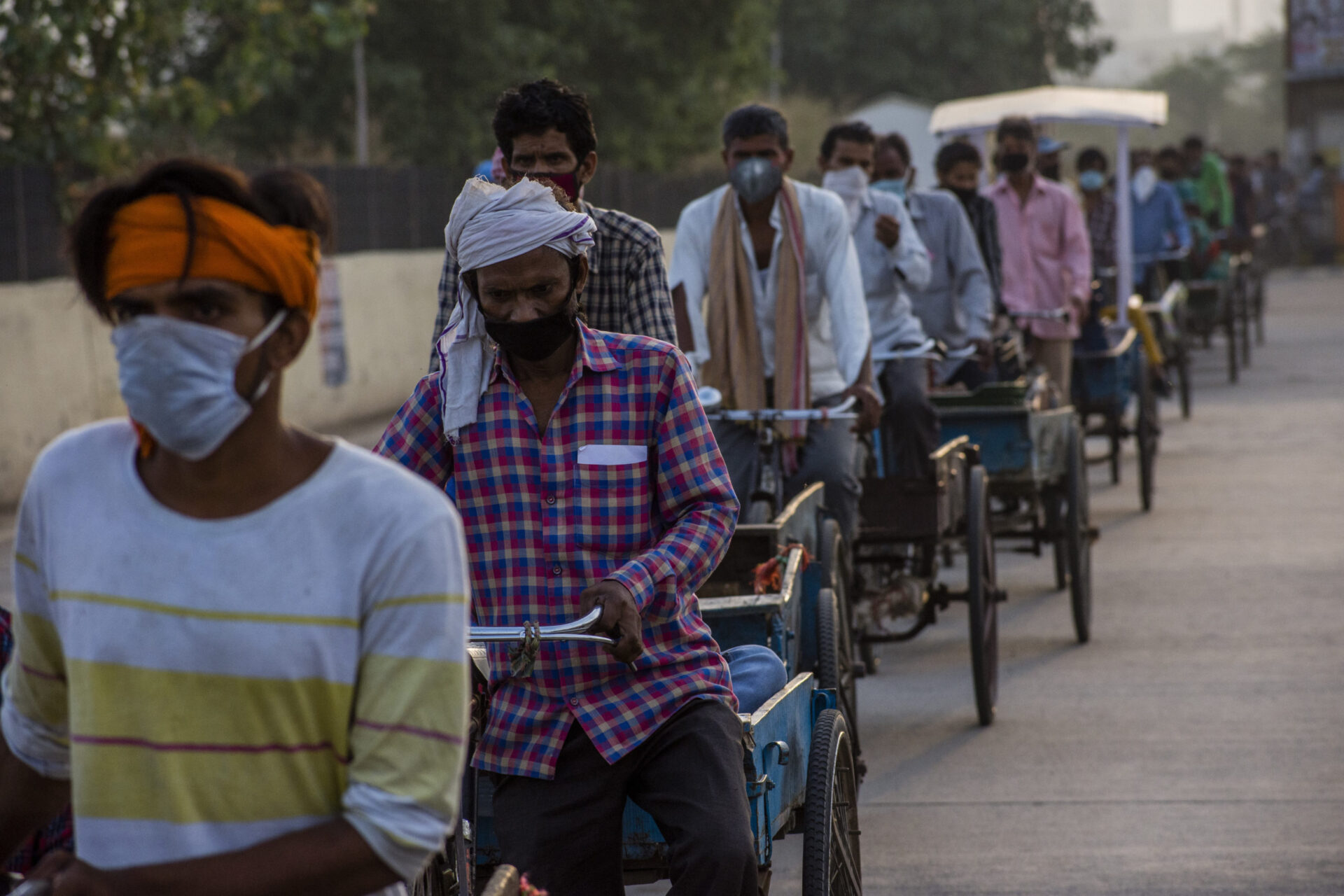As damaging as the COVID-19 pandemic has been in China and the West, it is set to devastate developing countries through death tolls, economic hardships and instability.
The news coverage of the COVID-19 pandemic so far has, understandably, focused on the impact it has had in China and the West. It seems that at least the first wave of the disease is being brought under control in the developed world. It is now time to shift focus to how the disease will likely affect the developing world. The effects of the disease there can be expected to be much more severe than we have seen so far, and unless we intervene to help these countries manage the crisis, we can expect spillover effects that will significantly impact the developed world.
Health Prospects
Due to the nature of the infection, and the way it can affect people on a spectrum between no symptoms and acute respiratory disease causing death, scientists have still not been able to put a number on the exact mortality rate of this virus. They may not be able to do so until the very end of the pandemic, which could be years from now.
In any case, COVID-19 looks to have a mortality rate of at least an order of magnitude higher than the seasonal flu (normally pegged at 0.1%). It can, however, spread much farther and much quicker through the entire population of the globe than any flu since the 1918 pandemic. We are currently counting global cases in the millions and deaths in the hundreds of thousands.
The infectiousness and potency of this virus quickly overwhelmed the advanced healthcare systems of countries like Italy and Spain. It is even bringing the United Kingdom’s venerable National Health Service close to the breaking point, with doctors at this point routinely asked to treat COVID-19 patients without adequate protective equipment. But if the situation looks dire in places such as these, the situation will be much, much worse in areas in the global periphery: the growing cities of Africa with their high population densities (e.g., Lagos and Kinshasa are already more populous than London or Paris), poor management, and extremely poor infrastructure can expect to be decimated. Even better organized cities like Delhi, Dhaka, Kolkata, Mumbai, Karachi, Jakarta and others (which so far have dodged the proverbial bullet) could still be hit very hard, given how New York and London have struggled.
The emerging mega-cities in the developing world, all topping 10 million people and growing rapidly prior to the pandemic, can expect devastating death tolls – to say nothing of the rural hinterlands in many of these countries, though the COVID-19 deaths in those areas are likely to go largely unreported. The continent of Africa could see between 300,000 and 3.3 million deaths during the pandemic.
Economic Effects
Prior to the pandemic, the developing world’s emerging mega-cities were the engines of economic growth in their countries, and part of one of the greatest economic success stories in the history of humanity – even though their stories have usually been eclipsed by the simultaneous rise of China. Feeding that growth was the energy, the talent, and the drive of a booming younger generation: the children of decades of efforts poured by the international community into health and education initiatives in the world’s poorest regions.
But all these engines of growth are now faced with a savage supply-side shock with poor data collection and bureaucratic penetration. The pandemic could lead to massive deaths in these mega-cities, or there will be fewer deaths because people isolate and will not be able to work. In India, there has already been a huge migration of young people away from the lockdowns in the big cities and back to the countryside where they still have family. The economic lifeblood is being sucked out of these cities before our very eyes. The effects of this might be hard to imagine for us in the West, where the population of our large cities is much more settled and permanent. The closest analogy might be the dereliction and desertion of Michigan – except happening in a matter of weeks, not decades. This exodus could be swiftly reversible in principle, but as the pandemic is likely to stay with us for at least another year, if not two, the permanent damage this may bring to the economic fortunes of these cities is hard to foresee.
Even in the best-case scenario, where all that economic activity in the developing world bounces back to comparative levels 12-18 months from now, what will not be the same is the fiscal position of these countries. Most of these countries were already skating on thin ice with the international credit markets before the pandemic. Now, they will be crippled. Even if the governments of these countries do not attempt to do anything to sustain the people and the economy – whether furloughing workers or implementing stimulus packages, like we have done in the West and in East Asia – merely the drying up of tax revenues will sink most of them. And of course these governments should do more, and they should borrow what they need in order to sustain their people through this as best they can. But borrow from where?
In the developed world we have turned on the money printing presses. The U.S., EU and U.K. central banks are already committed to printing as much money as is needed to keep government borrowing in these countries sustainable. The developing world does not have this luxury. Most of their international debt is denominated in foreign currency, and if their central banks started printing money like ours have, the sovereign debt markets would sink them in an instant.
In short, there is no way that the developing world can navigate the fiscal implications of the pandemic through anything resembling normal market mechanisms for sovereign debt. Either the U.S. Federal Reserve and the other pivotal central banks print money for the governments of the developing world as well, or the IMF and World Bank forgive or pay off all pandemic-related costs these governments incur – with all the moral hazards and corruption that might come with that. Failure to do so will leave half of the world’s governments insolvent, and very likely break the entire global system of sovereign credit. If that comes to pass, it will also seriously affect our own government’s fiscal arrangements, with likely very serious implications for economic growth for the future.
Political Spillovers
Countries teetering on the edge of bankruptcy. Mass migrations (for now mostly internal) already set in motion. Governments that were already facing crises of legitimacy pushed into a position where they feel they can, and have to, use excessive force to impose the social distancing and sanitation conditions recommended by international health authorities. If the pandemic does not create more failed states, it will be a huge surprise.
With a greater number of failed states will come increased geopolitical instability and increased migration to the West, where the internal politics is already frayed on the issue of immigration in the wake of the recent crises in Syria, Iraq, Venezuela and Central America. This could lead to geopolitical chaos.
We are already intimately familiar with these processes and their consequences from the aftermath of the 2008 financial crisis and the 2011 Arab Spring. However, we have every reason to expect that the magnitude of these problems may be substantially higher this time around. And considering how the global powers handled these issues over the past decade, it is not at all obvious that we can cope with them this time around.
All in all, after the unprecedented bailouts of our own economies in the face of this pandemic, it is, unfortunately, imperative that we prepare to bail out the rest of the world, too. And quickly. The virus has already made its way to many of these areas of the world.
We are lucky that the outbreaks in these areas have not already exploded out of control, likely due to their residents’ relative lack of international travel. It has given us enough time to get a grip on the situation in our own countries. But as we are starting to assert some control over the situation at home, we must understand that our work has only just begun and it will need to extend far beyond our borders. The West will likely have to bail out the entire world, and we may have to rewrite the rules of international finance in order to do it.
If we fail to do so, the spillovers will fall upon us regardless, and they will not be merely more expensive than the action we need to take. The consequences of more failed states and even more mass migration toward the West will put us at the same kinds of risks that the developing countries are facing right now.
Dr. Azeem Ibrahim is the Director of Special Initiatives at the Newlines Institute. He is also an Adjunct Research Professor at the Strategic Studies Institute, US Army War College. Dr. Ibrahim is also author of “The Rohingyas: Inside Myanmar’s Hidden Genocide” (Hurst & OUP) and “Radical Origins: Why We Are Losing The Battle Against Islamic Extremism” (Pegasus New York).
The views expressed in this article are those of the author and not an official policy or position of the Newlines Institute.







